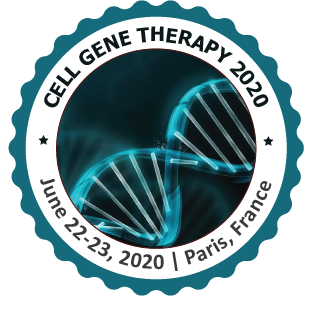
Sabrina Paille
Senior Medical Director , Audentes Therapeutics, Switzerland
Title: ASPIRO Gene Therapy Trial In X-Linked Myotubular Myopathy (XLMTM): Update on Preliminary Safety And Efficacy Findings up to 72 Weeks Post-Treatment
Biography
Biography: Sabrina Paille
Abstract
XLMTM, caused by mutations in the MTM1 gene, is characterized by muscle weakness, respiratory failure, and early death. ASPIRO is an ongoing, open-label, randomized study (NCT03199469) evaluating safety/efficacy of AT132, an investigational gene therapy for delivery of functional MTM1 gene copies. XLMTM patients, £7 years-old, were randomized to treatment or delayed-treatment control and enrolled into ascending dose cohorts to receive a single AT132 infusion. Data are available for 12 patients (4–72 weeks’ follow-up): 6, Cohort 1 (1x1014vg/kg); 4, Cohort 2 (3x1014vg/kg); 2, untreated controls. Muscle biopsy data are available for 9 treated patients: 6, Cohort 1; 3, Cohort 2. Since study initiation (Sep17) there were 82 AEs considered related/possibly related (14 serious AEs; 68 non-serious) as of 7Aug19. At baseline, all patients required 12–24 hrs/day ventilatory support, and missed critical motor milestones. Clinically meaningful changes from baseline in CHOP-INTEND and MIP scores were observed in all but one treated patient. Treated patients also achieved important motor milestones. There was significant and rapid reduction in ventilatory use in all but one treated patient, with 7 treated patients reaching ventilatory independence. These improvements contrast with controls in whom gains of motor skills and achievement of ventilator independence were not observed. Muscle biopsies demonstrated robust dose-dependent tissue transduction and myotubularin expression with considerable improvement in histopathology. AT132 has shown manageable safety profile across dose cohorts. Clinically meaningful improvements in neuromuscular and respiratory function continue through 72 weeks post-dose. An optimal dose (3x1014vg/kg) has been selected for the study’s confirmatory phase.

